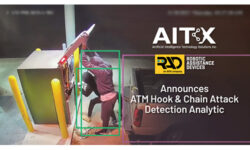Virginia Tech Tragedy Turns Industry’s Attention Toward Campus Safety

BLACKSBURG, Va. — On April 16, English major Seung-Hui Cho went on a killing rampage, claiming 32 Virginia Tech student and faculty lives and propelling campus security to the forefront of national attention.
Questions have been raised as to the effectiveness of security measures currently in place and how an institution of higher learning can assure the safety of its students, faculty and staff. Security Sales & Integration recently spoke with security integrators, manufacturers and other industry professionals to gauge the potential impact the Virginia Tech massacre may have on the industry.
Two of the most prevalent obstacles encountered in the campus market remain the dilemmas of locking down an open college environment and acquiring the funding to implement more effective technologies. While the experts agree it would be ideal to be able to lock down a campus in an emergency, not all agree on the feasibility to do so. This poses a great problem because whereas many K-12 schools have fencing in place to keep a closed, controlled environment, colleges are typically quite open. How then does college campus security control a dangerous situation?
“Video may have helped if someone was monitoring the system and they recognized he wasn’t acting normal. If he was walking around without his weapons concealed, you could have taken some action,” says Paul Novak, vice president, sales, at Clovis, Calif.-based Pelco. “But there’s a lot of ‘ifs’ in that whole scenario.”
“He would have had the credentials that would have probably allowed him into any building,” points out Peter Blauvelt of the National Alliance for Safe Schools, on how access control measures could have affected Cho’s progress. “I often say when you look at who was the villain, the villain was already on campus legally.”
“CCTV is critical for support,” says Fred Konnerth, senior integrator with San Antonio-based MDI Security Systems. “With it, we can go back and start viewing areas for motion, identify individuals and relay information to authorities on site.”
Patrick Fiel, public safety advisor, education, at ADT Security Services says that, in addition to providing CCTV cameras that tie into patrol cars so respondents can see the situation they’re headed into, the company recommends mass notification systems (MNS) to be part of the security budget. The former executive director of school security for the Washington D.C. Public School System goes on to say that an MNS system should alert via all means available, including E-mail, text message, PA systems and telephones, and in multiple languages.
What of getting such measures budgeted? The consensus is that this horrific event will end up having a positive effect on the security market through mostly knee-jerk response from university budgeting committees.
Pelco Industry Solutions Manager Steve Nibbelink emphasizes that campus security has to make its business case with a comprehensive plan, just like any other department.
Ray Lauk, education marketing manager for Bradenton, Fla.-based GE Security, adds, “What we’re finding is school boards and school administrators are unwilling to fund things that no plan exists for. When there is a well thought-out plan, there is a greater tendency to want to fund those things. It’s really a perception.”
“If they’re asking for a Cadillac, they’re going to pay for a Cadillac,” contends Fiel. “But there are things that are cost-effective that could work for them.”
Robin Hattersley Gray, executive editor of Campus Safety magazine, says college and university law enforcement representatives have testified before the Senate and House of Representatives that they need dedicated federal funding for security initiatives. Although in the past many campuses have indirectly received grants from the Department of Homeland Security and Justice Department to support such initiatives, currently they are not explicitly recognized as recipients.
“Most in the campus safety community believe this should change, and it appears the Virginia Tech tragedy may prompt Congress to provide additional financial support,” says Gray.
“This is an event-driven market,” says GE Security Global Communications Leader, Homeland Protection, Steve Hill. “However, there’s not one silver bullet when it comes to security that by itself solves all your problems. What you’re looking to do is create layers that together deliver the right level of certainty to have your bases covered.”
— Nick Schultz
If you enjoyed this article and want to receive more valuable industry content like this, click here to sign up for our FREE digital newsletters!

Security Is Our Business, Too
For professionals who recommend, buy and install all types of electronic security equipment, a free subscription to Commercial Integrator + Security Sales & Integration is like having a consultant on call. You’ll find an ideal balance of technology and business coverage, with installation tips and techniques for products and updates on how to add to your bottom line.
A FREE subscription to the top resource for security and integration industry will prove to be invaluable.







